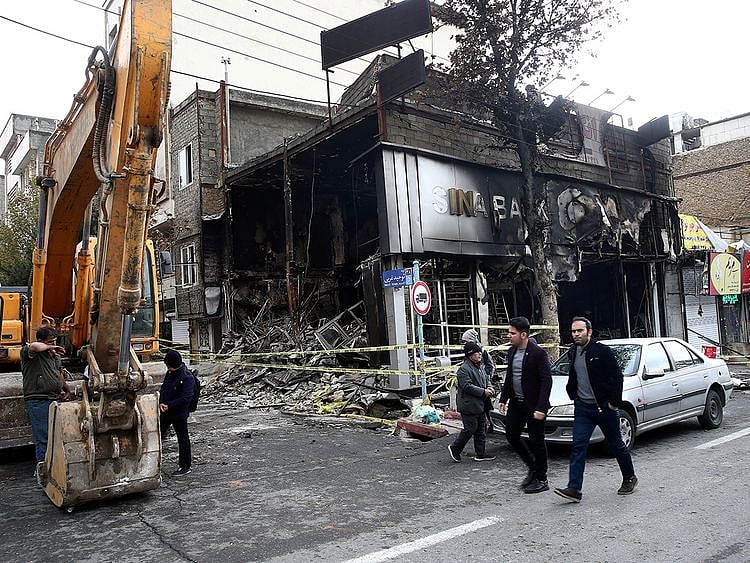Beirut: Human Rights Watch accused Iran on Wednesday of “deliberately covering up” deaths and arrests during a crackdown on demonstrations this month.
Protests broke out across sanctions-hit Iran on November 15, hours after a sharp fuel price hike was announced.
Reports of deaths and arrests emerged as security forces were deployed to rein in demonstrations which turned violent in some areas, with dozens of banks, petrol pumps and police stations torched.
Iranian officials have blamed the street violence on the intervention of “thugs” backed by royalists and Iran’s arch-enemies - the United States, Israel and Saudi Arabia.
The extent of the crackdown remains unclear, however, primarily due to an internet outage that was imposed during the unrest.
HRW charged that Iranian authorities were “deliberately covering up the scale of the mass crackdown against protesters” and called on them to “immediately announce the number of deaths, arrests and detentions”.
The group’s deputy Middle East director, Michael Page, criticised Iran for having so far “refused to provide an accurate death toll and instead threatened detainees with death”.
London-based Amnesty International has estimated more than 140 people were killed in the protests.
Iranian officials have confirmed that five people were killed and have so far announced about 500 arrests, including of some 180 “ringleaders”.
“Keeping families in the dark about the fate of their loved ones while ratcheting up an atmosphere of fear and retribution is a deliberate government strategy to stifle dissent,” Page said.
‘Vicious circle’
Tensions between Tehran and Washington spiked in May last year when the US unilaterally withdrew from an international accord that gave Iran relief from sanctions in return for curbs on its nuclear programme.
The United States said Tuesday it had received thousands of messages from Iran about protests after appealing to demonstrators to defy restrictions on the internet.
“We’ve received to date nearly 20,000 messages, videos, pictures, notes of the regime’s abuses through Telegram messaging services,” said Secretary of State Mike Pompeo, referring to the encrypted app.
Mansoureh Mills, a researcher for Amnesty, told AFP the group had set up channels on Twitter and Telegram for people inside Iran and that it had received videos of riot police smashing up shop windows and cars.
Mills said the protesters took to the streets out of desperation, adding that “they can’t get a job, they can’t feed their families”.
This would periodically spark more protests and more crackdowns, she said, adding that “it’s like a vicious circle”.
Mills said Amnesty was most concerned about the death toll and the fate of arrested protesters.
Iranian authorities, she said, had a history of holding people incommunicado.
“They threaten them and they obtain these forced confessions, and then they broadcast confessions and they use them at trial to convict them,” said Mills.
“Unfortunately we fear that this is what is going to happen with these protestors.”
Sign up for the Daily Briefing
Get the latest news and updates straight to your inbox
Network Links
GN StoreDownload our app
© Al Nisr Publishing LLC 2026. All rights reserved.
